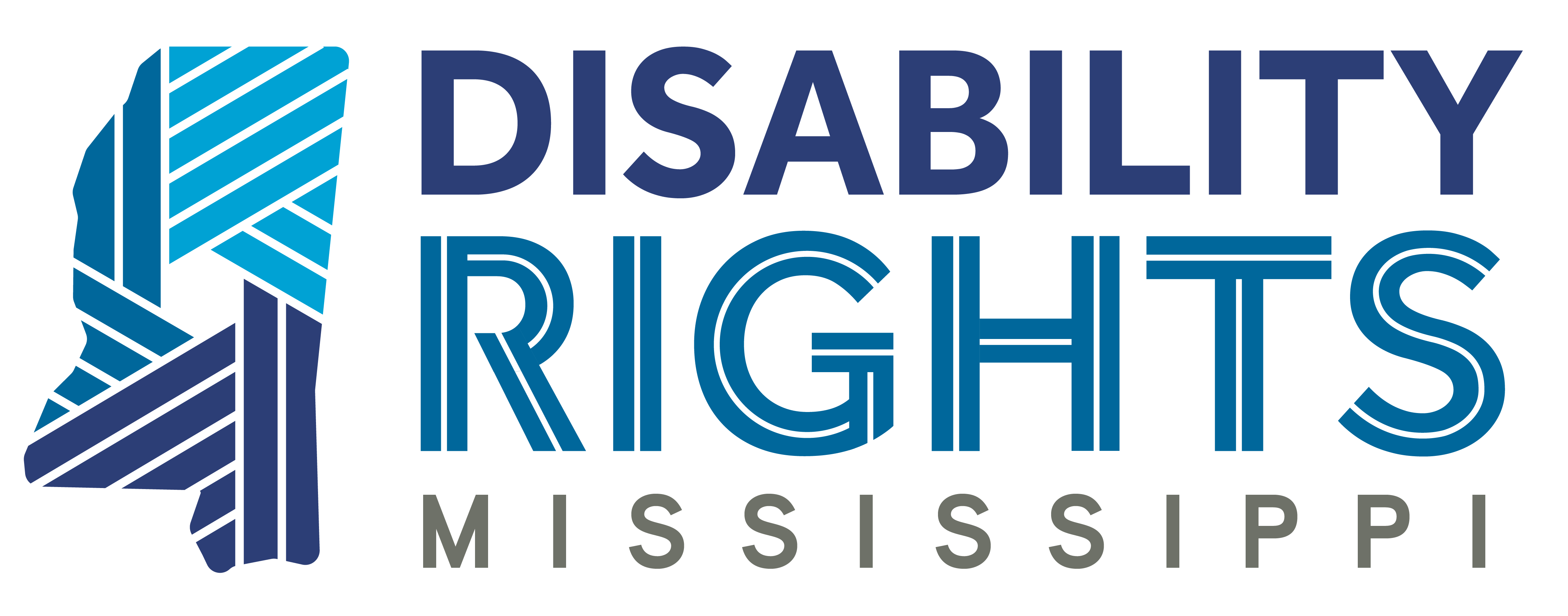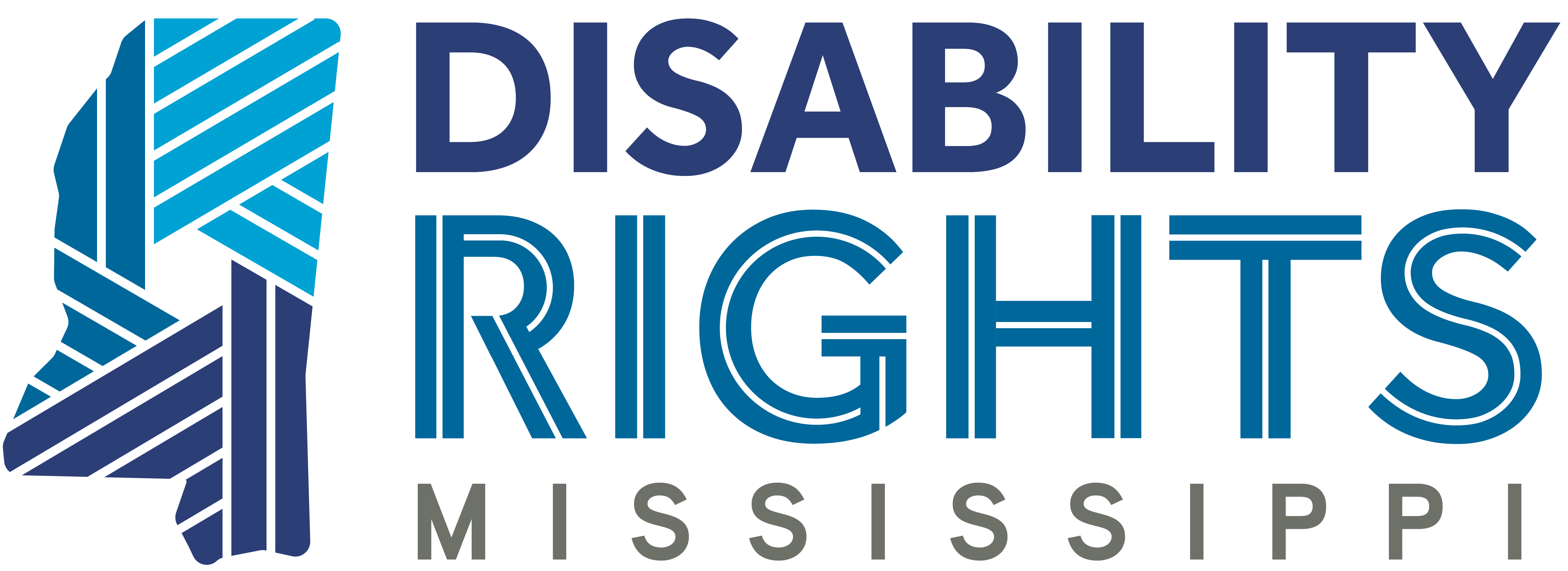Disability Rights Mississippi is authorized and funded by Congress, as well as several other government agencies. DRMS administers the following programs:
PROTECTION AND ADVOCACY FOR ASSISTIVE TECHNOLOGY (PAAT)
The PAAT program was created in 1994 when Congress expanded the Technology-related Assistance for Individuals with Disabilities Act (Tech Act) to include funding for P&As to “assist individuals with disabilities and their family members, guardians, advocates and authorized representatives in accessing technology devices and assistive technology services through case management, legal representation and self-advocacy training. Originally passed by Congress in 1988, the Tech Act set up a lead agency in each state to coordinate activities to facilitate access to, provision of, and funding for assistive technology devices and services for individuals with disabilities. The office of Special Education and Rehabilitation Services and the National Institute on Disability and Rehabilitation Research (NIDRR) administers the PAAT program.
Authorized in the Assistive Technology Act, 29 U.S.C. §3004, Pub. L. No. 105-394
PROTECTION AND ADVOCACY FOR INDIVIDUALS WITH DEVELOPMENTAL DISABILITIES (PADD)
The PADD program was created by the Developmental Disabilities Assistance and Bill of Rights (DD) Act of 1975. PADD requires P&As to pursue legal, administrative, and other appropriate remedies under all applicable federal and state laws to protect and advocate for the rights of individuals with developmental disabilities; it is administered by the Administration on Developmental Disabilities of the Administration for Children and Families, U.S. Department of Health and Human Services.
Authorized in the Developmental Disabilities Assistance and Bill of Rights Act, 42 U.S.C. §15001, Pub. L. No. 106-402
PROTECTION AND ADVOCACY FOR VOTING ACCESSIBILITY (PAVA)
The Protection and Advocacy for Voting Access Program (PAVA) is funded under the Help America Vote Act (HAVA) grant which was established in the aftermath of the controversial 2000 Presidential election in Florida and was signed into law in October 2002. HAVA established an Election Assistance Commission (EAC) to serve as a national clearinghouse on election information and to provide federal standards for voting systems. It also mandated that persons with disabilities be given access to the polls and have secret ballots. P & As were provided additional funding to ensure that the rights of voters with disabilities are protected.
Authorized in the Help America Vote Act of 2002, 42 U.S.C. §15461-15462, Pub. L. No. 107-252
PROTECTION AND ADVOCACY FOR INDIVIDUAL RIGHTS (PAIR)
The purpose of the Protection and Advocacy of Individual Rights is to protect and advocate for the rights of individuals with disabilities who do not qualify for assistance under the Client Assistance Program (CAP), Protection and Advocacy for Individuals with Developmental Disabilities (PADD), or Protection and Advocacy for Individuals with Mental Illness (PAIMI). PAIR will protect and advocate for the rights of individuals with disabilities through enforcement of the Americans with Disabilities Act (ADA), the Rehabilitation Act, Individuals with Disabilities Education Act (IDEA), the Fair Housing Act, the Constitution of the United States and its amendments, the Constitution of Mississippi, and other applicable state and federal laws.
Authorized in the Rehabilitation Act, 29 U.S.C. §794e, Pub. L. No. 106-402
PROTECTION AND ADVOCACY FOR INDIVIDUALS WITH MENTAL ILLNESS (PAIMI)
PAIMI services are provided to individuals who are residents of mental health facilities, in the process of being admitted to a facility, involuntarily confined in a detention facility for reasons other than serving a sentence resulting from conviction for a criminal offense, or current or past recipients of mental health services including services in a hospital or any facility (public or private) where the person is primarily labeled mentally ill.
Authorized in the Protection and Advocacy for Individuals with Mental Illness Act 1986, 42 U.S.C.A. §§ 10801-10807, 10821-10827 (Reauthorized in the Children’s Health Act of 200o)
PROTECTION AND ADVOCACY FOR BENEFICIARIES OF SOCIAL SECURITY (PABSS)
The Protection and Advocacy for Beneficiaries of Social Security (PABSS) grant has two specific purposes. First, it provides information and advice about obtaining vocational rehabilitation and employment services. Second, it provides advocacy or other services that a beneficiary needs to secure or regain gainful employment.
Authorized in the Ticket to Work and Work Incentives Improvement Act of 1999, 42 U.S.C. §1320b-21, P.L. 106-170
PROTECTION AND ADVOCACY FOR INDIVIDUALS WITH TRAUMATIC BRAIN INJURY (PATBI)
The Protection and Advocacy for Traumatic Brain Injury Program (PATBI) is designed to serve persons in Mississippi with traumatic brain injury who need assistance regarding abuse/neglect, accessibility, assistive technology, housing, habilitation, financial entitlements, legal status and parental rights. PATBI will network with other programs serving the TBI population in the state to provide the most up-to-date information and services.
Authorized in the Children’s Health Act of 2000, 42 U.S.C. §300d-53, Pub. L. No. 106-310
STRENGTHENING PROTECTIONS FOR SOCIAL SECURITY BENEFICIARIES ACT (Rep Payee)
In March 2018, legislation was passed by the U.S. Senate to increase oversight and protection for some of our nation’s most vulnerable citizens. The bill, called the Strengthening Protections for Social Security Beneficiaries Act (H.R. 4547), increased independent oversight of the Social Security Administration’s Representative Payee Program.

